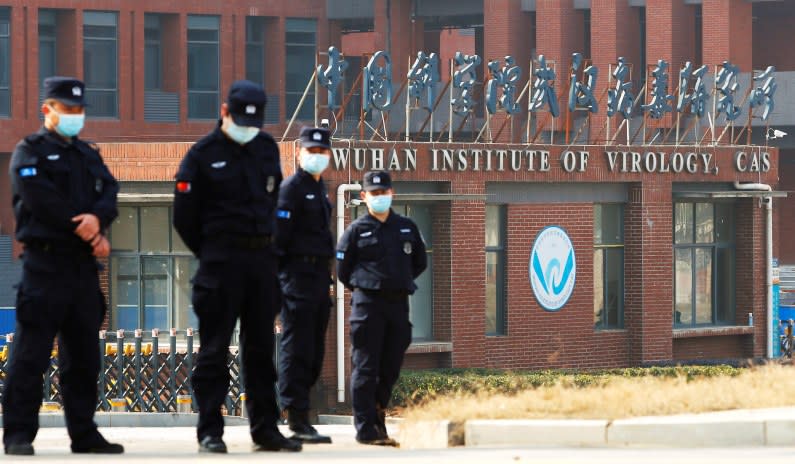HHS Board Never Approved Wuhan Institute of Virology Research Grant

- Oops!Something went wrong.Please try again later.
A board created to oversee research that could make dangerous pathogens more contagious did not review a National Institutes of Health grant that funded a project in Wuhan, China to genetically modify bat-based coronaviruses, according to a new report.
The nonprofit group EcoHealth Alliance received federal funding for its research without undergoing an independent review by the Potential Pandemic Pathogens Control and Oversight (P3CO), according to the Daily Caller.
The grant included $600,000 in funding to the Wuhan Institute of Virology (WIV), the lab where some experts believe COVID-19 first leaked into the human population in late 2019.
Rutgers University professor of chemical biology Richard H. Ebright told the Daily Caller that the offices of the director for the National Institute of Allergy and Infectious Diseases (NIAID) — the subagency that funded EcoHealth — and the NIH have “systematically thwarted — indeed systematically nullified — the HHS P3CO Framework by declining to flag and forward proposals for review.”
Dr. Anthony Fauci is the director of the NIAID while Dr. Francis S. Collins leads the NIH.
“After careful review of the grant, NIAID determined research in the grant was not gain-of-function research because it did not involve the enhancement of the pathogenicity or transmissibility of the viruses studied,” an NIH spokesperson told the Daily Caller in explaining why its subagency did not flag the grant for independent review.
Meanwhile, an annex to the World Health Organization’s COVID-19 origin report released last week detailed the WIV’s work using “recombinant viruses” in tests involving bat coronaviruses, which Ebright said are descriptions of gain-of-function research.
Ebright said that NIAID was wrong to determine that the EcoHealth grant did not involve increasing the transmissibility of the coronaviruses. He noted that the project’s abstract for the 2019 fiscal year, which referenced “in vitro and in vivo infection experiments” on coronaviruses, “*unequivocally* required risk-benefit review under the HHS P3CO Framework.”
While the WIV has the highest level biocontainment certification U.S. embassy officials raised concerns about inadequate safety at the lab following a 2018 visit, including a warning that the lab’s work on bat-based coronaviruses posed the risk of a new SARS-like pandemic, according to the Washington Post.
If the grant had undergone P3CO review, an HHS panel would have independently scrutinized the grant and recommended additional biocontainment measures to prevent lab leaks, if necessary, or potentially even recommend that the grant be denied.
The panel, which evaluates whether grants that involve enhancing dangerous pathogens are worth the risks involved while ensuring that proper safeguards are in place, was formed in 2017. The board was created three years after federal funding for “gain-of-function” research was temporarily suspended over concerns it risked leaking supercharged viruses into the human population.
The NIH ended the EcoHealth grant in April 2020 at the order of former President Trump’s White House.
NIH deputy director for extramural research, Michael Lauer, wrote in a letter to the group that the agency “does not believe that the current project outcomes align with the program goals and agency priorities.”

